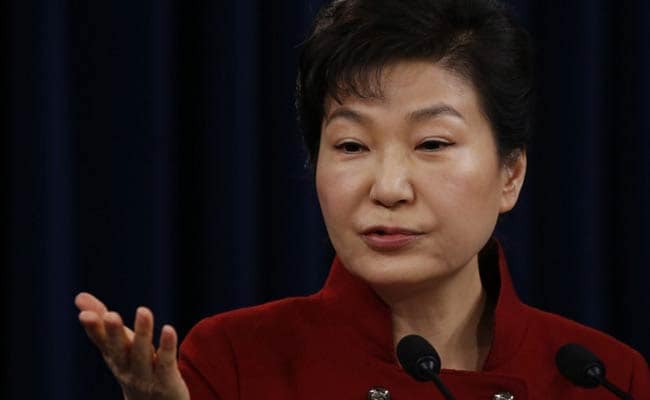
South Korean President Park Geun-Hye today offered a "creative" solution to stalled six-party talks on North Korea's nuclear programme -- cut Pyongyang from the equation and make them five-party negotiations instead. (File Photo)
Seoul, South Korea:
South Korean President Park Geun-Hye today offered a "creative" solution to stalled six-party talks on North Korea's nuclear programme -- cut Pyongyang from the equation and make them five-party negotiations instead.
"We should find various and creative approaches, including attempting to hold five-way talks excluding North Korea," Park said during a policy briefing with top ministers.
The six-party talks, involving the two Koreas, the United States, Japan, Russia and China, began in 2003 as an effort to dismantle North Korea's nuclear programme in exchange for aid.
The North quit the dialogue process in 2009, ostensibly to protest sanctions imposed after a long-range rocket test.
The following month it conducted its second nuclear test.
North Korea's main ally, China, has repeatedly pushed for the talks' resumption, but Park said the North's fourth nuclear test on January 6 underlined Pyongyang's rejection of denuclearisation as a bargaining chip.
"Even if the talks are resumed, their effectiveness would certainly be called into question," she said.
The latest test triggered a flurry of diplomatic activity between the five non-North Korean members of the defunct talks process, with the US, Japan and South Korea urging China to take the lead in imposing stronger sanctions on its maverick neighbour.
"I expect China to take effective measures to make sure North Korea can recognise that the development of its nuclear programmes serves no purpose, and that it should re-join the international community as Iran did," Park said.
Beijing will have a crucial role to play in the wording of the resolution currently under discussion within the UN Security Council to punish Pyongyang for its latest test.
China is North Korea's chief diplomatic protector and economic benefactor, but Beijing's patience has worn thin with Pyongyang's behaviour and unwillingness to rein in its nuclear weapons ambitions.
However, China's leverage over Pyongyang is mitigated by its overriding fear of a North Korean collapse and the prospect of a reunified, US-allied Korea directly on its border.
"We should find various and creative approaches, including attempting to hold five-way talks excluding North Korea," Park said during a policy briefing with top ministers.
The six-party talks, involving the two Koreas, the United States, Japan, Russia and China, began in 2003 as an effort to dismantle North Korea's nuclear programme in exchange for aid.
The North quit the dialogue process in 2009, ostensibly to protest sanctions imposed after a long-range rocket test.
The following month it conducted its second nuclear test.
North Korea's main ally, China, has repeatedly pushed for the talks' resumption, but Park said the North's fourth nuclear test on January 6 underlined Pyongyang's rejection of denuclearisation as a bargaining chip.
"Even if the talks are resumed, their effectiveness would certainly be called into question," she said.
The latest test triggered a flurry of diplomatic activity between the five non-North Korean members of the defunct talks process, with the US, Japan and South Korea urging China to take the lead in imposing stronger sanctions on its maverick neighbour.
"I expect China to take effective measures to make sure North Korea can recognise that the development of its nuclear programmes serves no purpose, and that it should re-join the international community as Iran did," Park said.
Beijing will have a crucial role to play in the wording of the resolution currently under discussion within the UN Security Council to punish Pyongyang for its latest test.
China is North Korea's chief diplomatic protector and economic benefactor, but Beijing's patience has worn thin with Pyongyang's behaviour and unwillingness to rein in its nuclear weapons ambitions.
However, China's leverage over Pyongyang is mitigated by its overriding fear of a North Korean collapse and the prospect of a reunified, US-allied Korea directly on its border.
Track Latest News Live on NDTV.com and get news updates from India and around the world

